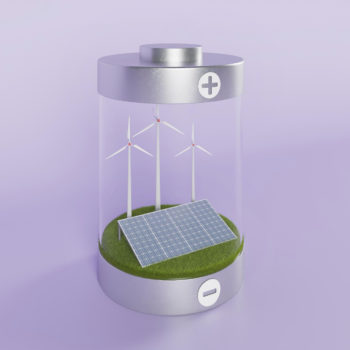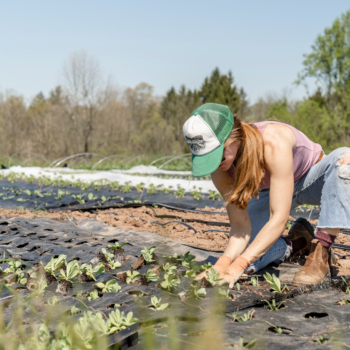Do pesticides pose more risks than benefits?
Humans have used pesticides for over 4,000 years. These tiny pest-killing substances transformed food production forever, allowing for the development of the type of large-scale agriculture that feeds the Western world today.
While some may see pesticides as a gift, the consequences are alarming. Pesticides pose serious risks to both environmental and human health, causing illness and bee colony collapse on farms throughout the country.
Busy? Try the speed read.
The scoop Pesticides promote large-scale agriculture, yet damage environmental and human health…
Risks for humans
- At least 200,000 deaths each year.
- Cancer, Alzheimer’s, Parkinson’s diseases
- Hormone disruption, developmental disorders, sterility
- Loss of: memory, motor skills, vision and coordination
- Asthma, allergies, hypersensitivity
Environmental risks One can find traces of pesticides in the air, soil, and water (thus spreading far and harming wildlife including: pollinators, amphibians, birds, fish, and invertebrates). Bee colony collapse and reproductive issues are highly concerning.
What can we do? A “systemic denial fueled by the pesticide and agroindustry” keep pesticides on the market. Luckily, the UN proposes international guidelines on regulating pesticides, while promoting agroecology: a practice which combines science and local knowledge to create community-based, agricultural systems.
The UN found that agroecology can “feed the entire world population” while ensuring adequate nourishment. Agroecology is the engine for solving world hunger, without the associated risks of pesticide-use.
What can I do?
- Research your local Congressman’s stance on Pesticide Bans. Vote!
- Grow a garden. You’ll help pollinators and enjoy pesticide-free produce.
- Helpful resources…
- Watch Neonicotinoids: The New DDT? free
- Watch: Circle of Poison
- Read Silent Spring
Dig deeper → 3 min
Do pesticides pose risks to my health?
Yes. Some health risks associated with pesticide-use include:
- Cancer, Alzheimer’s and Parkinson’s diseases
- Hormone disruption, developmental disorders, and sterility
- Neurological effects ( loss of: memory, motor skills, vision and coordination
- Asthma, allergies, and hypersensitivity
According to the United Nations, pesticides cause at least 200,000 deaths each year. Despite the clear risk, many pesticides and other toxic substances remain unregulated in the US.
Here’s an example of why that matters:
DDT (a harmful pesticide) was banned in 1972.
However, the U.S. Center for Disease Control and Prevention found DDE (which is DDT after the human body breaks it down) in “most of the population” they sampled, thirty years after the product was banned!
It remains unclear how long DDT lingers in the human body or the environment. Studies have found that mothers can pass pesticides to a developing fetus and to infants through breast milk. Pesticides are playing a very dangerous, unregulated game on human health.
What role does the Government play in pesticide regulation?
The United States’ Fourth Report, or the National Report on Human Exposure to Environmental Chemicals, tested U.S. citizens for 212 different environmental chemicals (many of which are found in pesticides).
The Fourth Report states, “For most of the environmental chemicals included in [this report], more research is needed to determine whether exposure at the levels reported is a cause for health concern.”
I read their entire statement, but could not find cautionary statements about these chemicals.
Naturally, you may wonder why the CDC would have little information on the environmental substances encountered in the human body. Even DDT—which has proven to linger in humans—has not been clearly identified for its negative health effects by the CDC, being labeled as ‘possibly’ causing cancer.
Why is the government not clear on what’s a health threat and what isn’t?
The United Nations’ Statement on Pesticide Regulation
The United Nations states that governmental neglect of pesticide regulation has been “exacerbated by a systematic denial, fueled by the pesticide and agroindustry” as well as their unchallenged use of “unethical” and “aggressive marketing” tactics.
In response, the United Nations aims to create a set of international guidelines and rules on reducing pesticide use, banning highly hazardous pesticides, and promoting agroecology.
You can view their full proposal, here.
Environmental concerns for pesticides
Unsurprisingly, pesticide exposure also severely harms other species besides humans. Organisms such as insect pollinators, invertebrates, amphibians, birds, and fish have experienced adverse effects from exposure to neonicotinoids and fipronil (two highly common insecticides in the United States).
Here are some specific ways that pesticides harm species:
- Bees: Neonicotinoids make it difficult for bees to communicate. It suppresses their immune system, making them susceptible to viruses and verroamites (a main factor/cause of colony collapse), reproductive issues, and a loss of navigational ability (they can’t find their way home, get lost, and die).
- Crab larvae: damages their mitochondria, which leads to muscle paralysis, immune suppression, and bacterial and fungal infections.
- Sea urchins: damage to DNA, leading to developmental abnormalities that pass down generations.
Check out IUCN and The Task Force of Systemic Pesticides, here.
Agroecology: Do We NEED Pesticides?
The United Nations found an excessive use of pesticides, which violates ecosystem and human health rights.
Instead of using pesticides, the United Nations seeks to use principles of agroecology to create different, sustainable ways of growing food.
Agroecology combines science with traditional and local agricultural practices to create a resilient agricultural system led by local communities. Communities work to identify the ‘root’ causes of an agricultural problem, and determine long-term solutions.
Unlike our current band-aid approach, agroecology is adaptive, lasting for lifetimes. And that’s what sustainability is all about. You can learn more about agroecology, here.
The UN has found that “agroecology is capable of delivering sufficient yields to feed the entire world population”, while ensuring adequate nourishment.
The current food crisis we face is due not to a lack of food, but to a lack of proper distribution. With an increase in localized food production and smarter agricultural systems, the entire world could be fed, and we could drop the risks that pesticides inflict!
What can I do to stop widespread pesticide use?
-
Go to the farmers’ market!
Buying local, organic produce and supporting local farmers is a great initiative, although our larger food systems have a long way to go. -
Grow your own garden!
What better way is there to keep you and your household safe than by growing your own, pesticide-free produce? -
Vote in local elections!
Research your local Congressman’s stance on Pesticide Bans. Vote! -
Support initiatives…
There are so many initiatives going on in sustainable agriculture, agroecology, ecoforestry, and other related fields. A simple google search will do the trick. -
Stay Informed…
- Watch Neonicotinoids: The New DDT?on Youtube
- Watch the film or read the book: Circle of Poison
- Read Silent Spring, by Rachel Carson
- Watch A herbicide-free future. Considering solutions across Europe.













No Comments